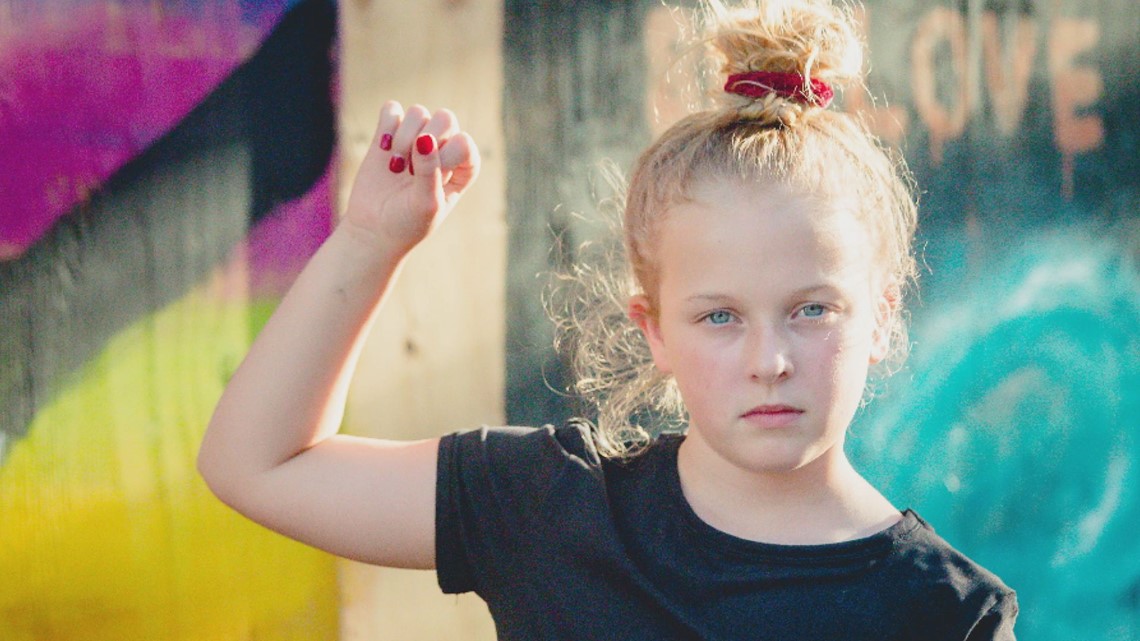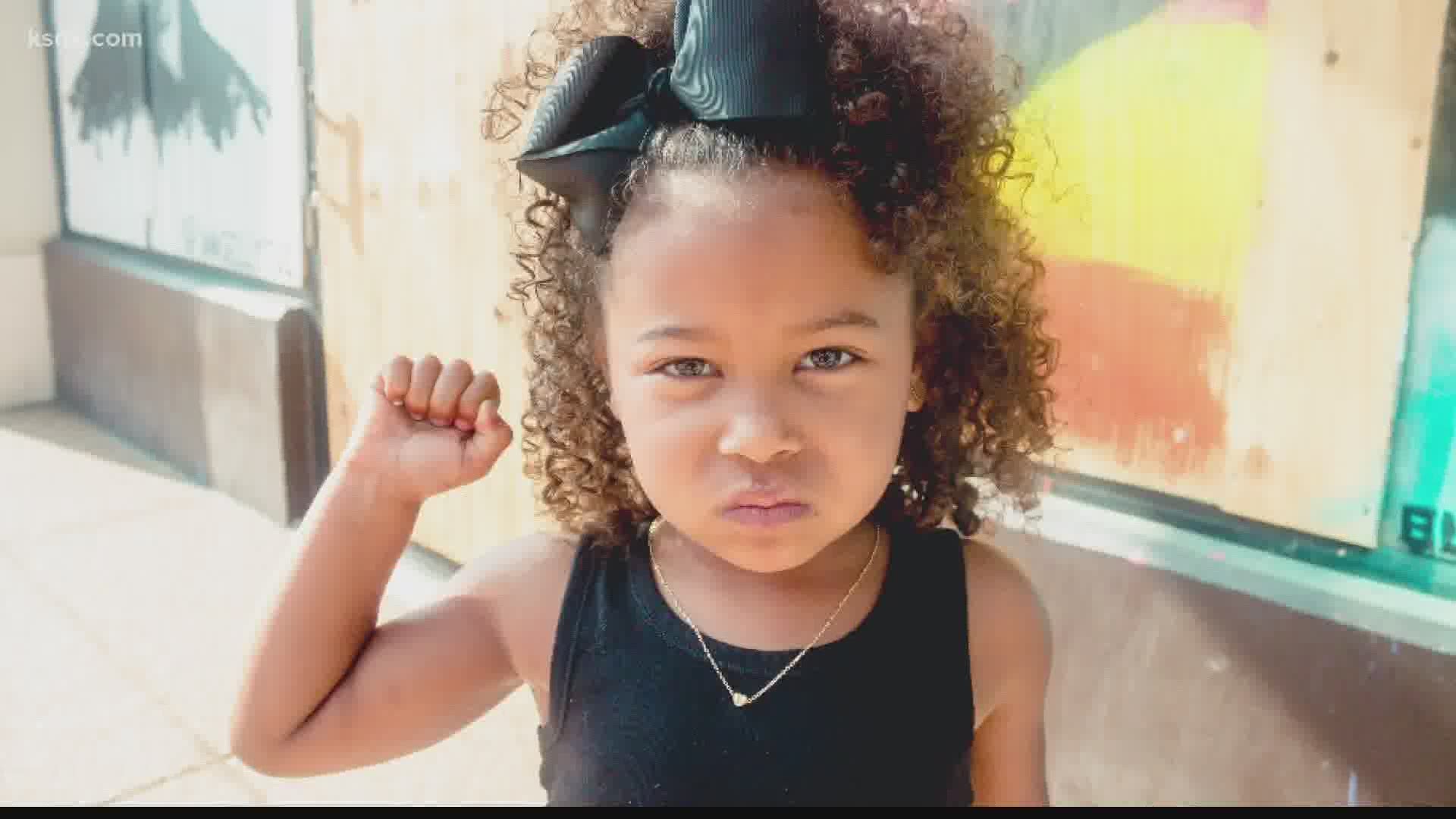ST. LOUIS — They say, a picture is worth a thousand words and in this case, these words are voiced by children.
And in her latest shoot? She wanted to see the world through a different lens.
Faith wanted to hear from our littlest ones, as protests take over the streets and conversations of racism unfold.
"To give our kids a voice. Our children see a lot that we don't think they're seeing," she said.
The former teacher and now photographer wanted to take pictures in front of murals around St. Louis, so the children could see the art in front of their eyes and talk about racism and protests.
"I let them choose what piece of art they wanted to stand in front of," she explained.
She posted on her Facebook and asked parents who wanted to be involved.
Faith thought she would only get a few responses. But instead, she heard back from 60 parents.
In one weekend, she had about 25 photo shoots and photographed 30 children holding their fist up high.


"I got a huge response from parents that they didn't realize that their kids were understanding these things," Faith said.
Behind the scenes, Faith challenged parents to have conversations. Ones that may not be picture perfect.
Giving them a set of questions. A few of them included:
- How would you feel if your skin were a different color?
- How have you used your voice to help or have you stood up for someone when their feelings were hurt?
- Why are people protesting right now? How does that, or the protests, make you feel?
- Why do you think that some people do not get treated the same because of what they look like?
- Do you think that is fair?
- How and why do you think grown-ups can/should make change in St. Louis so people with different skin tones are not treated differently or poorly when you grow up?
Faith said the answers were shocking to parents.
How would you feel if your skin was a different color?
"My skin is white. I’d honestly be OK with it but I would sort of be worried for myself a little bit, because I’ve heard there are some racist police and I would be worried about that." (age 10)
"My skin is peach. If my skin was a different color, like brown or something, I would be sad because I don’t want to be tortured by those people." (age 6)
"My skin is brown and I'd be happy because I like white skin better" (age 5)
Why do you think that some people do not get treated the same because of what they look like? Do you think that is fair?
“No it's not fair. I just think it's dumb. Like, why are people racist? Just because I look different does not mean I'm bad. Do people think that?” (age 8)
“I think it would be fair if police officers treated Black people the way they treat white people.” (age 6)
Why people are protesting? How does people protesting make you feel?
“People are protesting because cops are hurting people because of the color of their skin. I don’t know why other people think they are better than anyone else because of their skin color.” (age 10)
“Because a police officer shot a Black man because of his skin and that is not OK. Sad because it shouldn’t be needed - it hurts my feelings.” (age 6)
"If we're not having those conversations and sparking the light bulbs in their heads, or even talking to them that they are seeing, it can be detrimental to them," she says.
UNICEF says, “Babies notice physical differences, including skin color, from as early as 6 months. Studies have shown that by age 5, children can show signs of racial bias, such as treating people from one racial group more favorably than the other. Ignoring or avoiding the topic isn’t protecting children, it’s leaving them exposed to bias that exists wherever we live.”
"I think it’s amazing that we are going to protests and I think it’s amazing taking our children, but if we aren’t having the conversations on why we are doing those things, then they are never going to understand," Faith added.
Faith hopes that even though children aren't in school, they can still learn.
"We are our kids best teachers. We are the ones that they look to see what's right and wrong," Faith said.
She explains, we've always looked at our children to be the change we want to see. And by viewing the world through their eyes, it could be a way to picture a better tomorrow.
Faith hopes to have another session since she's had such a big response.
She's asking for a $25 suggested donation. Every year, she hosts a back-to-school event in her community and she hopes to do the same this year.
Even though they may be tough, she encourages everyone to have these conversations with their children.
OTHER LOCAL STORIES

